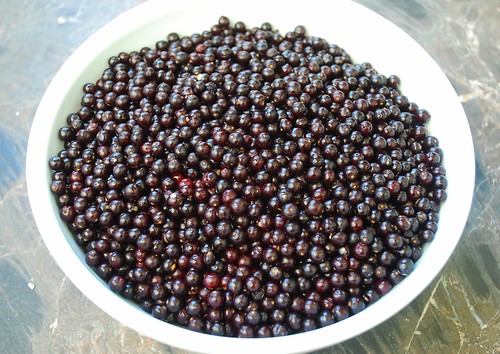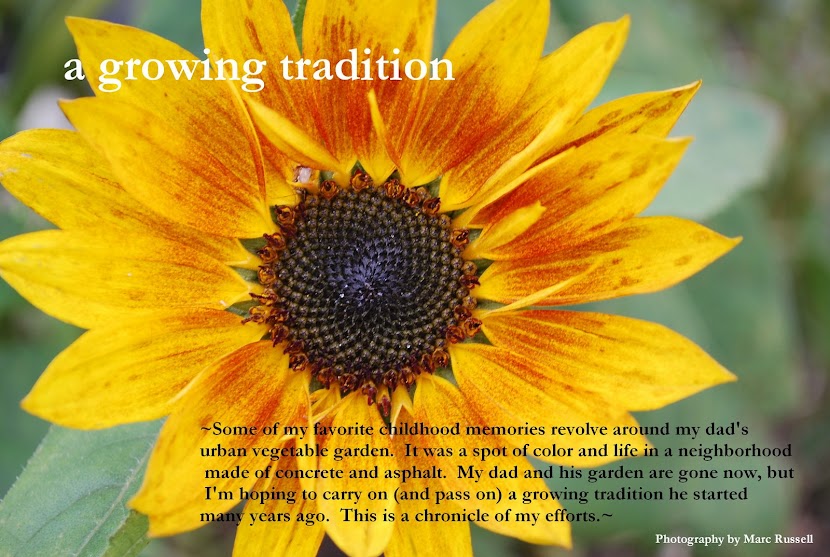Wednesday, August 8, 2012
Saturday, August 4, 2012
Ripe Elderberries
The elderberries are ripe for the picking. As the berries grow darker and fatter, the clusters droop closer to the ground.

These dark purple, almost black, elderberries are really interesting. Up until a couple of months ago, I didn't know much about them. From what I've read, all parts of the plant are to a certain extent toxic, even the seeds. As a result, eating too many of the berries raw can give you an upset stomach. I don't think there is much risk of that for me because they taste awful raw as far as I'm concerned.
Many people believe that elderberries hold certain health benefits. One of our neighbors juices them and claims that they help to relieve constipation. Another neighbor, who dries and then grinds them into a powder, believes that they work to boost one's immune system. I'm more interested in them for a more traditional purpose - winemaking. Apparently, people have been making elderberry wine for centuries. I can see why as there is a wildness about them that becomes tamed during the winemaking process.

The clusters are fairly easy to strip - almost like stripping currants. I have two one gallon recipes - one calling for 3 lbs of ripe berries and another calling for 10 lbs. I'm assuming the latter will result in a richer more full-bodied wine. So far, we've picked around 5 lbs and when all is said and done, we'll have enough to make wine and a batch or two of jam.

These dark purple, almost black, elderberries are really interesting. Up until a couple of months ago, I didn't know much about them. From what I've read, all parts of the plant are to a certain extent toxic, even the seeds. As a result, eating too many of the berries raw can give you an upset stomach. I don't think there is much risk of that for me because they taste awful raw as far as I'm concerned.
Many people believe that elderberries hold certain health benefits. One of our neighbors juices them and claims that they help to relieve constipation. Another neighbor, who dries and then grinds them into a powder, believes that they work to boost one's immune system. I'm more interested in them for a more traditional purpose - winemaking. Apparently, people have been making elderberry wine for centuries. I can see why as there is a wildness about them that becomes tamed during the winemaking process.

The clusters are fairly easy to strip - almost like stripping currants. I have two one gallon recipes - one calling for 3 lbs of ripe berries and another calling for 10 lbs. I'm assuming the latter will result in a richer more full-bodied wine. So far, we've picked around 5 lbs and when all is said and done, we'll have enough to make wine and a batch or two of jam.
Subscribe to:
Comments (Atom)







